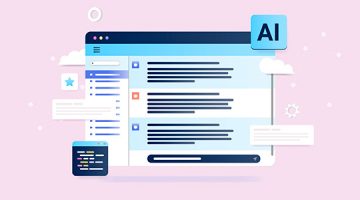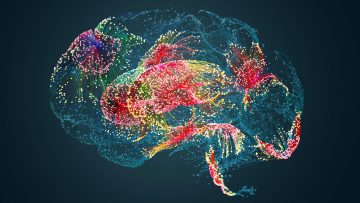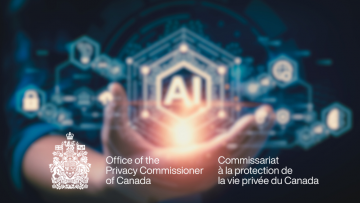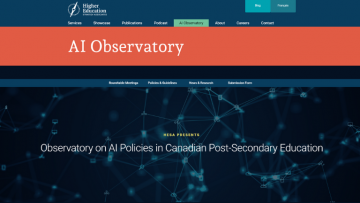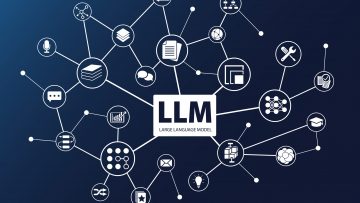Faculty
- McMaster develops and shares open resources on using generative AI in education
This summer, McMaster released revised teaching and learning guidelines, which offer clearer direction on areas such as the potential risks of using AI in learning, AI detection tools, and appropriate uses of AI for students and instructors.
- Teaching and Learning Guidelines
These guidelines, developed with the Generative AI Teaching and Learning Advisory Subcommittee, provide guidance on responsible and ethical use of GenAI in teaching and learning at UBC.
- Prompts for Education: Educators
A helpful repository of prompts tailored for educators to interact with generative AI technology like ChatGPT and Bing Chat. With a focus on enhancing productivity and learning, the repository offers customizable prompts designed to save time, automate tasks, and facilitate engaging educational experiences, all while adhering to responsible AI principles outlined by Microsoft.
- Exploring AI Pedagogy: A Community Collection of Teaching Reflections
Exploring AI Pedagogy is a crowdsourced space that facilitates reflective discussions on AI experiments in the classroom with an ethos of open, collaborative inquiry. Here, you can explore the pedagogical experiences shared by community members, including reflections on successes, failures, and results that often present conundrums.
- metaLAB (at) Harvard: AI Pedagogy Project
How do we make informed, intentional decisions about the role of AI in the classroom? How can students develop critical relationships with these tools? The AI Pedagogy Project helps educators engage their students in conversations about the capabilities and limitations of AI informed by hands-on experimentation.
- Thinking About ChatGPT?
Conversations around the impacts of artificial intelligence (AI) tools are ongoing as their capabilities continue to evolve. AI tools have the potential to change the way we teach, learn and work at UBC. This list brings together important things to know about ChatGPT and generative artificial intelligence in the classroom.
- Privacy Impact Assessments for GenerativeAI Instructional Use
Guidance for instructional use of AI based on current Privacy Impact Assessments (PIA) including any recommendations for Instructors with regards to teaching and learning uses for Generative AI Tools at UBC.
- UBC Faculty of Education AI Corner
This site focuses on learning design and teaching practices that integrate AI. It features examples and ethics-focused literacy resources for teaching and learning with Generative AI. Bringing the concerns around AI and ethics to the forefront, these resources have been designed in line with UBC’s educative approach to academic integrity.
- Academic Integrity Hub, GenAI FAQ
This list brings together important things to know about ChatGPT and generative artificial intelligence in the classroom for instructors and students at UBC.
- Guide on the use of Generative AI
The Canadian federal government has released staff guidelines that can be referenced for use of Generative AI in your daily work.
- Centre for Teaching, Learning and Technology (CTLT)
The Centre for Teaching, Learning, and Technology (CTLT) at UBC Vancouver, and the Centre for Teaching and Learning (CTL) at UBC Okanagan are offering offering a number of learning opportunities to showcase generative AI and its implications for teaching and learning. Workshops, support clinics, presentations, and more are available on their website.
- Microsoft Generative AI for Educators
For educators interested in AI and its applications for learning outcomes, learner engagement, and educator workload reduction, Microsoft is offering a free one-hour introductory course.
Students
- Graduate Program Guide
Developing Guidelines for Graduate Student Use of Generative AI Tools – A Guide for Graduate Programs
- Graduate education and Generative AI (Gen AI)
This site provides preliminary guidance on the ethical use of GenAI tools in the context of graduate education at UBC and all aspects of graduate student scholarship, including admission applications, coursework, comprehensive exams, major projects, and theses/dissertations.
- McMaster develops and shares open resources on using generative AI in education
This summer, McMaster released revised teaching and learning guidelines, which offer clearer direction on areas such as the potential risks of using AI in learning, AI detection tools, and appropriate uses of AI for students and instructors.
- Teaching and Learning Guidelines
These guidelines, developed with the Generative AI Teaching and Learning Advisory Subcommittee, provide guidance on responsible and ethical use of GenAI in teaching and learning at UBC.
- Prompts for Education: Students
A helpful repository of prompts from Microsoft tailored towards students to interact with generative AI technology like ChatGPT and Bing Chat. With a focus on enhancing productivity and learning, the repository offers customizable prompts designed to save time, automate tasks, and facilitate engaging educational experiences, all while adhering to responsible AI principles outlined by Microsoft.
- Generative AI Toolkit from Canvas
How to approach AI tools in your course if your instructor allows
- What’s the deal with ChatGPT and AI Tools?
Generative AI guidance from UBC Okanagan’s Academic Integrity Matters (AIM) program.
- Using Generative AI in Academics
As students, the challenge of using GenAI tools is the proper application of these tools in your studies concerning academic integrity and privacy. This site guides students in using Generative AI responsibly and ethically.
- Academic Integrity Hub, GenAI FAQ
This list brings together important things to know about ChatGPT and generative artificial intelligence in the classroom for instructors and students at UBC.
- Guide on the use of Generative AI
The Canadian federal government has released staff guidelines that can be referenced for use of Generative AI in your daily work.
- How to cite Generative AI and ChatGPT as sources
Detailed assistance on how to properly cite Gen AI and ChatGPT
- Centre for Teaching, Learning and Technology (CTLT)
The Centre for Teaching, Learning, and Technology (CTLT) at UBC Vancouver, and the Centre for Teaching and Learning (CTL) at UBC Okanagan are offering offering a number of learning opportunities to showcase generative AI and its implications for teaching and learning. Workshops, support clinics, presentations, and more are available on their website.
Staff
- Principles for responsible, trustworthy and privacy-protective generative AI technologies
Federal, provincial and territorial privacy authorities have launched a set of principles to advance the responsible, trustworthy and privacy-protective development and use of generative artificial intelligence (AI) technologies in Canada.
- Higher Ed Strategy – AI Observatory
The AI Observatory aims to keep post-secondary institutions informed of the latest developments on AI policies and guidelines in the higher education sector and encourage cross institutional learning.
- Guide on the use of Generative AI
The Canadian federal government has released staff guidelines that can be referenced for use of Generative AI in your daily work.
Researchers
- Logos for Transparent Use of Artificial Intelligence
Instructors, students and staff should use GenAI transparently. Dr. Martine Peters has developed icons to clearly denote such use.
- Topic Guide: Generative AI & Research Security
New generative AI tools provide unique research potential throughout a project’s lifecycle. Researchers and scholars in all disciplines should be aware of several research security
considerations when employing generative AI tools.Note: This content is only available to UBC community members with a valid CWL login
- Michigan Institute for Data Science: Using Generative AI for Scientific Research
The Michigan Institute for Data Science (MIDAS) website provides tools, resources, and research.
- Pitfalls and Potential: Integrating Generative AI into your Research and Scholarship
Learn about integrating GenAI with your research through a recorded session with UBC’s Dr. Jeff Clune.
- Using Large Language Models and Generative AI in Research
Emerging large language model (LLM) and artificial intelligence (AI) technologies, such as ChatGPT, have impacts on UBC’s research environment. This page provides a brief overview of various opportunities and challenges associated with using these tools in research.
- Guide on the use of Generative AI
The Canadian federal government has released staff guidelines that can be referenced for use of Generative AI in your daily work.
- Ethics of Artificial Intelligence
In no other field is the ethical compass more relevant than in artificial intelligence. These general-purpose technologies are re-shaping the way we work, interact, and live.














